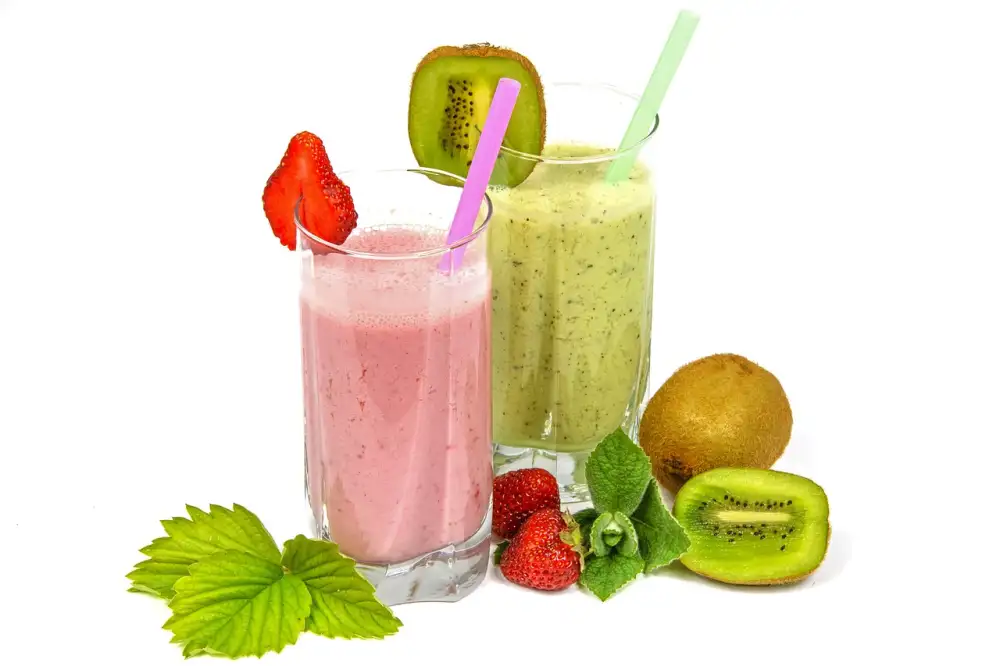Unveiling the Healthiest Energy Drink: Which One Reigns Supreme?

- Importance of choosing a healthy energy drink
- Considerations for evaluating the healthiness of energy drinks
- Exploring natural and organic energy drink options
- Examining the ingredients and nutritional content of energy drinks
- Comparing the caffeine levels in different energy drinks
- Understanding the potential side effects of energy drinks
- Highlighting innovative and healthier alternatives to traditional energy drinks
Energy drinks have become increasingly popular in recent years as a quick and convenient way to boost energy levels. However, their impact on health is a topic of concern. These beverages are often loaded with caffeine, sugar, and artificial ingredients, which can have negative effects on the body. Excessive consumption of energy drinks has been linked to various health issues, including increased heart rate, high blood pressure, and even cardiac arrest in extreme cases. It is crucial to understand the potential risks associated with these drinks and make informed choices for our well-being.
Importance of choosing a healthy energy drink
Choosing a healthy energy drink is of utmost importance for our overall well-being. With the increasing popularity of these beverages, it is crucial to be mindful of the impact they can have on our health. Opting for a healthy energy drink ensures that we are fueling our bodies with the right nutrients and avoiding any potential harm caused by excessive sugar or artificial ingredients. By making an informed choice, we can enjoy the benefits of an energy boost without compromising our health.
Considerations for evaluating the healthiness of energy drinks
When it comes to evaluating the healthiness of energy drinks, there are several key considerations to keep in mind. First and foremost, it's important to look at the ingredients list. Avoid energy drinks that contain artificial sweeteners, high fructose corn syrup, or excessive amounts of sugar. Instead, opt for drinks that use natural sweeteners like stevia or fruit juice.
Another important factor to consider is the nutritional content of the energy drink. Look for drinks that are low in calories and free from added preservatives or artificial flavors. It's also worth checking if the drink contains any vitamins or minerals that can provide additional health benefits.
In addition to the ingredients and nutritional content, it's crucial to consider the source of caffeine in the energy drink. Some energy drinks rely heavily on synthetic caffeine, which can have negative effects on your health. Opt for drinks that derive their caffeine from natural sources like green tea or guarana.
Lastly, be mindful of any potential allergens or sensitivities you may have when choosing an energy drink. Some drinks may contain common allergens like soy or gluten, so always check the label before making a purchase.
By considering these factors and making informed choices, you can ensure that you are selecting a healthier option when it comes to energy drinks.
Exploring natural and organic energy drink options
When it comes to energy drinks, many people are becoming more conscious of the ingredients they consume. This has led to a rise in the popularity of natural and organic energy drink options. These alternatives offer a healthier choice for those seeking an energy boost without compromising their well-being.
Natural energy drinks are made from real, whole ingredients that provide a sustainable source of energy. They often contain natural stimulants such as green tea extract or guarana, which can provide a gentle and sustained lift without the crash associated with traditional energy drinks.
Organic energy drinks take things a step further by ensuring that all ingredients used are grown without the use of synthetic pesticides or fertilizers. This means that not only are these drinks better for your health, but they also support sustainable farming practices.
By choosing natural and organic energy drink options, you can avoid artificial flavors, colors, and sweeteners commonly found in traditional energy drinks. Instead, you'll be able to enjoy the refreshing taste of real fruit juices and natural sweeteners like honey or stevia.
It's important to note that while natural and organic options may offer a healthier alternative, moderation is still key. These drinks should be consumed in moderation and as part of a balanced diet to ensure optimal health benefits.
In conclusion, exploring natural and organic energy drink options allows you to make a more informed choice when it comes to boosting your energy levels. By opting for these healthier alternatives, you can enjoy the benefits of increased vitality without compromising your overall well-being.
Examining the ingredients and nutritional content of energy drinks
When it comes to evaluating the healthiness of energy drinks, one crucial aspect to consider is the ingredients and nutritional content. Many energy drinks on the market contain high amounts of sugar, artificial flavors, and preservatives, which can have negative effects on our health. It is important to read the labels and look for drinks that are low in sugar and free from artificial additives. Additionally, choose energy drinks that are rich in vitamins and minerals, such as B-vitamins and electrolytes, as these can provide a more natural source of energy. By examining the ingredients and nutritional content of energy drinks, we can make informed choices that prioritize our health while still enjoying an energizing boost.
Comparing the caffeine levels in different energy drinks
Comparing the caffeine levels in different energy drinks is crucial when it comes to making a healthier choice. Caffeine, a stimulant found in most energy drinks, can have various effects on the body. It increases alertness and provides a temporary energy boost, but excessive consumption can lead to negative side effects such as increased heart rate, anxiety, and insomnia.
It is important to note that not all energy drinks contain the same amount of caffeine. Some brands may have higher levels than others. For instance, popular energy drinks like Red Bull and Monster Energy contain around 80 mg of caffeine per 8 oz serving, while others like Rockstar and NOS have higher amounts ranging from 160-240 mg per serving.
Consumers should be aware of their own tolerance to caffeine and consider their overall daily intake from various sources such as coffee or tea. It is recommended that adults consume no more than 400 mg of caffeine per day. Therefore, choosing an energy drink with lower caffeine content or opting for alternatives like natural fruit juices or herbal teas can help reduce the risk of consuming too much caffeine.
When comparing caffeine levels in different energy drinks, it is essential to read the labels carefully and make informed choices based on personal health needs and preferences. By being mindful of caffeine intake and opting for healthier options when necessary, consumers can enjoy an energy boost without compromising their well-being.
Understanding the potential side effects of energy drinks
Understanding the potential side effects of energy drinks is crucial for making informed choices about our health. While these beverages may provide a quick energy boost, they can also have negative consequences. High levels of caffeine and sugar in energy drinks can lead to increased heart rate, high blood pressure, and even heart palpitations. Additionally, excessive consumption of energy drinks has been linked to dehydration, insomnia, and digestive issues. It's important to be aware of these potential side effects and consider healthier alternatives for sustained energy without the risks.
Highlighting innovative and healthier alternatives to traditional energy drinks
In recent years, the demand for healthier alternatives to traditional energy drinks has skyrocketed. Consumers are becoming more conscious of the negative effects that excessive caffeine and artificial ingredients can have on their health. As a result, innovative companies have stepped up to provide refreshing and energizing options that are both delicious and nutritious.
One such alternative is matcha green tea. Known for its high antioxidant content and natural caffeine boost, matcha provides a steady release of energy without the jitters or crash associated with traditional energy drinks. Additionally, matcha contains L-theanine, an amino acid that promotes relaxation and focus.
Another emerging trend is adaptogenic drinks. These beverages incorporate herbs like ashwagandha, ginseng, and rhodiola to help the body adapt to stress and increase stamina. Adaptogens have been used for centuries in traditional medicine systems and are now being incorporated into modern energy drinks for a natural and sustainable energy source.
For those looking for a fruity twist, coconut water-based energy drinks offer a refreshing option. Packed with electrolytes and natural sugars, coconut water provides hydration while delivering a gentle boost of energy. It's a great choice for those who want to replenish their fluids while also getting an energizing kick.
Lastly, kombucha is gaining popularity as an alternative energy drink option. This fermented tea beverage not only provides probiotics for gut health but also contains B vitamins that aid in converting food into energy. With its tangy taste and effervescence, kombucha offers a unique way to get your daily dose of vitality.
As consumers become more discerning about what they put into their bodies, the market continues to respond with innovative alternatives to traditional energy drinks. Whether you prefer matcha, adaptogens, coconut water or kombucha - there's something out there for everyone seeking a healthier way to stay energized throughout the day.
In conclusion, when it comes to choosing an energy drink for a healthier boost, it is crucial to make informed choices. Consider the impact on your health and opt for natural and organic options that prioritize quality ingredients. Pay close attention to the nutritional content and caffeine levels in different drinks. Be aware of potential side effects and choose alternatives that offer innovative and healthier options. By making these conscious decisions, you can enjoy an energy boost without compromising your well-being.
Published: 10. 12. 2023
Category: Health



